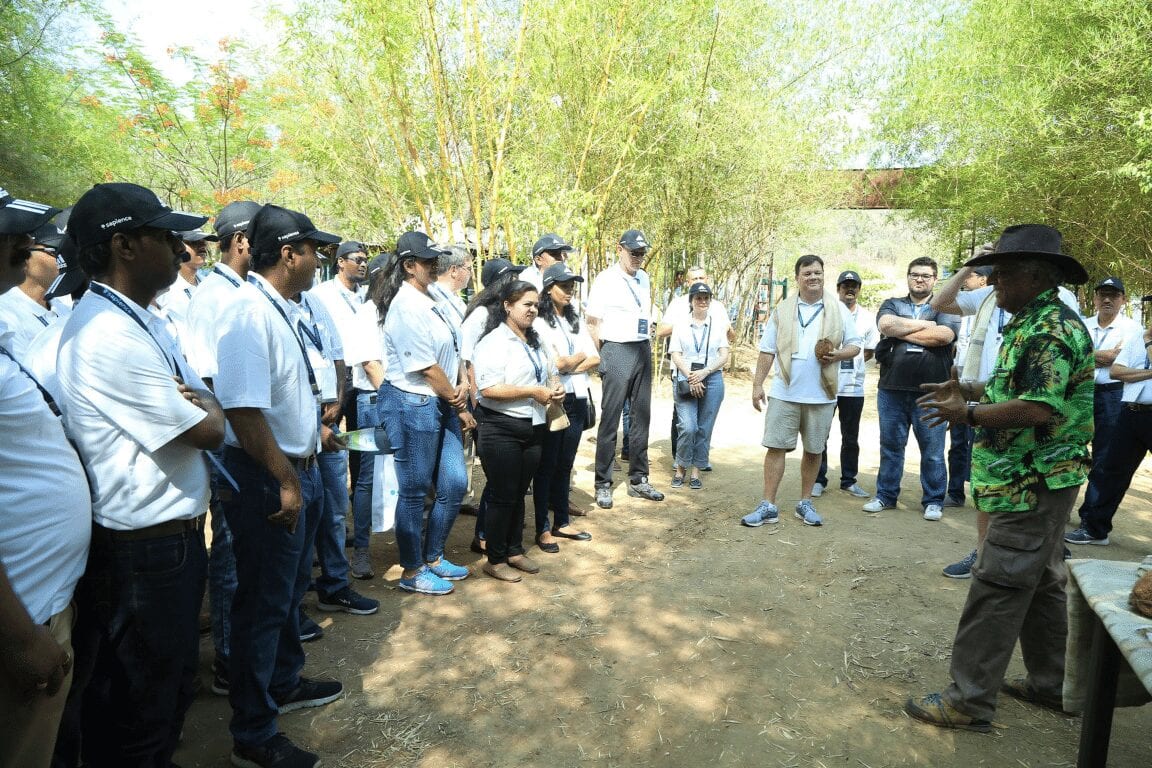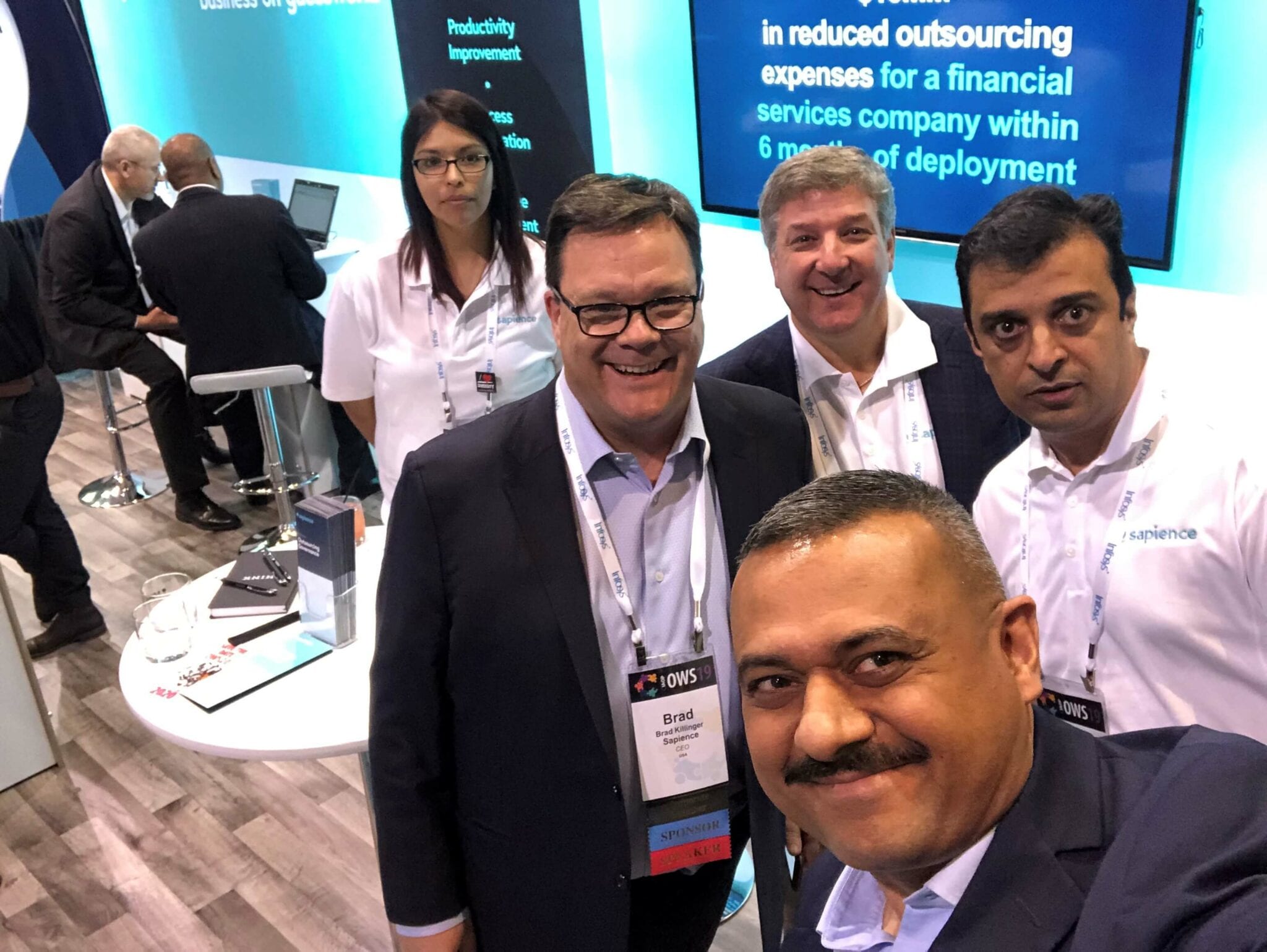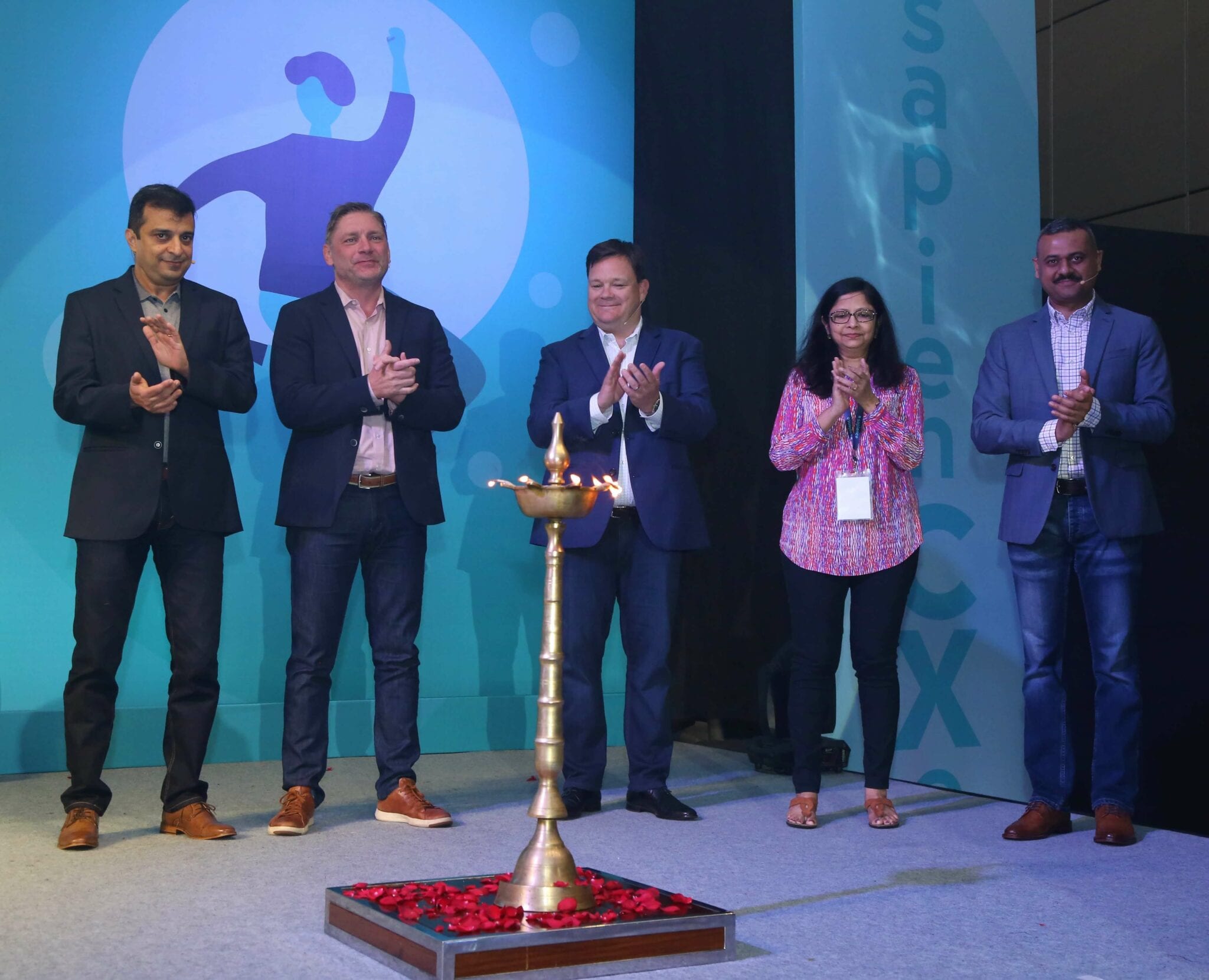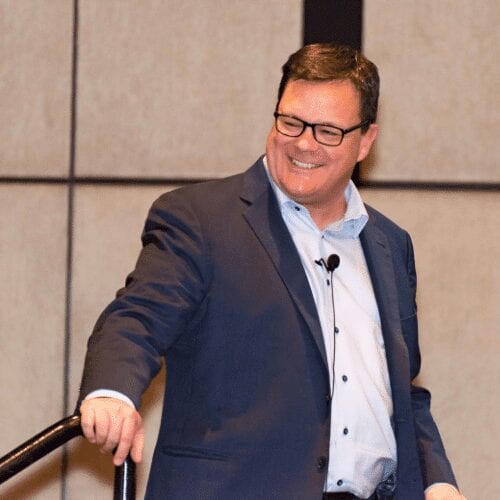 View from the C-Suite: Sapience CEO Brad Killinger
View from the C-Suite: Sapience CEO Brad Killinger
Leveraging People Analytics to change the way companies do business, in all functions.
Ever wonder how much time you actually spend doing core productive work at your job versus attending long wasteful meetings?
As a company leader, do you want to know how truly engaged your workers are and whether your teams could perform better?
And, do you ever ask whether your outsourcing engagements or work being done by a robotic workforce is actually delivering the efficiency gains that were promised?
These are the meaningful insights Sapience’s People Analytics can provide.
PULSE talked to the CEO of the market leader in this space, Sapience Analytics, about the powerful information big data can provide for companies and their workforce today. Read on for more from Brad Killinger about this fast-growth area.
Killinger spoke at OWS19 in Orlando this February about how an automated data-driven approach can solve challenges in governing outsourcing relationships and build an effective governance practice. He also shared his insights on a panel discussion on the evolving governance landscape.
Sapience’s software can help measure exact effort and utilization compared to estimates; equate work patterns across business units, projects, or roles; discover trends across the organization, and replace manual reporting of time spent at work with actual data.
[emaillocker id=”26087″]The data analysis can produce interesting evidence. For example, a recent study of productivity data generated from Sapience’s solution showed that remote or home employees spend on average of two more hours per day on work than their in-office counterparts, and 1.8 hours a day engaged in more focused non-distracted, ‘core time’ compared to their office colleagues.
It’s powerful revelations like this that are helping C-level executives make better-informed decisions about their workforce and, as a result, are driving productivity, improving employee engagement and increasing company profits across all functions of the organization. And it’s not just HR using people analytics. Procurement, outsourcing, and IT have leveraged Sapience to increase the value each of those functions brings to the company’s bottom-line and effectively, claiming their seat at the table.
P: Tell me about your role as CEO at Sapience.
I am responsible for the execution of Sapience’s global strategy. On a daily basis, this involves a bit of everything from sales and marketing to managing our capital and the overall growth and needs of the business. I am incredibly blessed to be in this role. It’s a great honor to lead such a talented and diverse group of employees. We’ve grown this business dramatically over the last two years and have over 90 customers in 18 countries around the world with more than 200,000 users. We see tremendous growth going forward. It’s an exciting time.
P: What is ‘people analytics’ all about?
People analytics is a revolutionary new space. It is emerging very quickly. Sapience was founded with a vision to transform people, processes and productivity. We wanted to create a solution that helps senior executives within complex global organizations better understand the utilization of their human capital and how that impacts their business.
Our second major goal was to design it around employees and not behave like big brother. Bringing all the data together provides companies and employees with actionable insights so they understand how they spend their time and whether that is in alignment with what management expects and their own individual goals. We are working with the biggest and best companies to help them achieve significant productivity improvements and overall higher employee satisfaction through the use of our system.

To prepare for fiscal year 2020, the entire Sapience team met in India for team building and bonding. Sapience leaders and employees planted sapling trees and donated to Green Thumb, Khadakwasala, an environment protection group committed to de-silting and water augmentation around the dam
P: Are you an outsourcing service provider?
Sapience is not a service provider. We do this via our software platform in a 100 percent automated fashion without intervention at the workplace. We have a piece of technology that collects information on end-point devices that employees use for their jobs. We collect data about various software application usage and time spent in meetings and tasks. Our software automatically converts that to our business intelligence engine that produces actionable reporting which provides all kinds of insights to a company about the behavior of their human capital.
P: How have companies historically analyzed their human capital?
Traditionally, if companies really wanted to understand what was happening in their organization they would go to the big consultancies and hire a team to do a study over many months. We have found this is very backward looking because organizations are changing organisms and it can be very cost prohibitive. We can do this analysis in real time and in the background at a company.
Our single biggest proposition is that we are truly changing the way companies do business. We are helping companies go from the manual interpretation of information entered by employees such as time sheets to actual results. We can report in real time what occurred inside the organization on a minute by minute, day by day, week by week basis. This is a huge transformational paradigm shift and companies who are using our solutions are seeing tremendous economic advantages over their competitors.
P: What role do you play in RPA? Can you monitor robots?
We play an important role in two ways. First, we can help companies determine what repetitive processes exist and are best suited for a bot. Second, we can track if the bots are effective. We become a management system that shows you all the inputs that are producing outcomes for your business so you can determine whether the bot is productive and whether it really allows the company to gain the efficiencies they thought they would.

Sapience exhibits its solutions in the Global Services Mall during the association’s annual Summit.
P: Tell me about the history of Sapience.
Sapience was founded nine years ago in Pune, India. It was a regional business focused around improving efficiencies in mid-labor centers in that marketplace. I got involved in 2016 with one of their U.S. customers and we saw that Sapience had developed something special.
NEXT Investors made a significant investment in the business and moved the global headquarters to the U.S. in 2017. In two years, we went from two employees to now forecasting 50 employees in U.S. by the end of the year. We are continuing to experience rapid growth by globalizing the product and adding new features and functions. We are seeing a greater acceptance in the marketplace of big data and analytics and the competitive advantage they can provide.
P: How are your products particularly effective in the outsourcing space?
We have an outsourcing governance use case that helps companies increase value from their outsourcing engagements. Having an outsourcing background, I saw how powerful this tool could be in answering some of the questions of the traditional black box of outsourcing. I’ve seen it hundreds of times where customers send thousands of jobs offshore and within six months were almost distrustful about the work being done. We can fill that gap and make outsourcing relationships much more transparent with fairer economics and lift the trust that had eroded.
P: Are there privacy concerns with using your products?
We like to say we’re big data, not big brother. We don’t capture any personal information or do screen scraping, keystroke logging, or anything that’s intrusive. We don’t know what people are typing inside their emails. We don’t report back if an employee was on Facebook half the day. We just know that it’s not a core work activity. We are extremely careful to build our business around being respectful and mindful of privacy concerns and we intend to stay out in front as privacy changes occur.

Sapience officially kicked off a company-wide trip to India with a candle lighting ceremony. Pictured from left to right are: Khiv Singh, SVP, Marketing & Sales; Wesley Bryan, COO; Brad Killinger, CEO; Swati Deodhar, SVP, Engineering & Co-Founder; and Rohit Singla, President of India Operations.
P: How have your past work experiences helped you in your current role?
I had a unique opportunity in the first half of my career in the strategic outsourcing world. I was an early pioneer at IBM in putting together a full scope offshore outsourcing engagement. There are so many things that I learned over the years about pricing and delivering a product to a customer. I had a chance to work with offshore delivery centers in India, the Philippines, and Argentina. That helped me learn how to work inside of other cultures. I made a career change in 2010, becoming a senior executive at Oracle, and that really brought me into the world of enterprise software. What Sapience offered was fascinating to me. You need to have a unique understanding of human capital, global labor, and how companies operate. There’s also this reality that we are an enterprise software company, and this is a far different business than being a service provider. I was very blessed and fortunate to draw upon both experiences going into Sapience.
P: What is the best advice you’ve received?
I am a very growth-orientated individual and the best thing I was ever told in business was ‘revenue solves lots of your problems.’ The lifeblood of any company is to sell something and drive revenue to the company. I keep an immense focus on the importance of revenue because it drives the customer experience and, ultimately, the health and longevity of the business.
P: Who are your role models?
My mom and dad. I had a very fortunate upbringing. I have a father who came from humble beginnings. He was a very skilled business leader and built a successful company in the right way with the right balance, values and goals. My mother taught me patience, the need to operate in a community, and to give back.
P: What books do you like to read?
I love reading about individuals who have achieved interesting things and learning about their journeys and incredible moments. I also am passionate about books about history. We can learn a tremendous amount by looking backward and seeing that history continues to repeat itself.
P: What foods do you like on the road and at home?
I travel a ton and I tend to eat Italian or at a steakhouse with clients. When I come home, I enjoy grilled foods and barbecuing kabobs with my family.
 At a Glance Brad Killinger
At a Glance Brad Killinger
Bradley Killinger joined Sapience Analytics, the global leader in people analytics as President in August 2017 and was named CEO and elected to the Board of Directors shortly after. Killinger is responsible for the execution of the company’s global strategy and growth. Under his leadership, he has helped propel Sapience Analytics to achieve significant growth over the last two years.
Killinger is passionate about continuing to promote Sapience Analytics’ disruptive technology within the marketplace by communicating its unique value proposition.
Killinger prides himself on being a great listener who truly hears employees and customers and believes this attribute along with energy and passion are the hallmarks of great leaders.
Prior to joining Sapience Analytics, Killinger served in several key global leadership roles at major technology companies, including IBM, Oracle, and Unisys. Killinger’s first job with IBM — one of the world’s largest IT companies — helped shape his leadership style.
“A leader must be willing to build a culture that allows its people to do what they do best. I am not here to perform the jobs of all of our Sapience team members,” he said. “We have capable, talented people in their roles, and I trust them to do well. My role is to stay in front of customers and to lead them down the road to greater success.”
Killinger holds a Bachelor of Arts degree in economic geography from the University of Washington College of Arts and Sciences.
He is strongly committed to philanthropy in both his personal and professional life. Killinger is active in community service through youth sports organizations and is an ardent supporter of charitable groups that help U.S. veterans and active military members. He also is proud that the Sapience Analytics team has been dedicated to helping enrich the local community and environment by planting hundreds of trees in Pune, India as part of one of the world’s largest conservation projects.
Killinger lives with his wife and six children in Plano, Texas.[/emaillocker]
About Sapience Analytics: From outsourcing governance, lean management and process automation to productivity improvement and employee engagement, Sapience provides the most advanced enterprise-level people analytics solution for customers seeking to move from manual self-reporting to actual data. With automated work pattern reporting and real-time analytics, Sapience delivers unprecedented visibility into how people work with actionable insights to better manage cost and performance across teams and organizations, and guide in-office and remote workforce deployment strategies. Fully-compliant with privacy standards and seamlessly integrated with ease and flexibility, Sapience’s solutions are fundamentally changing the way companies grow and operate and shaping the future of business.
Locations: Global headquarters in the Dallas-Ft. Worth area and operates a Research & Development center in Pune, India.


 At a Glance Brad Killinger
At a Glance Brad Killinger

